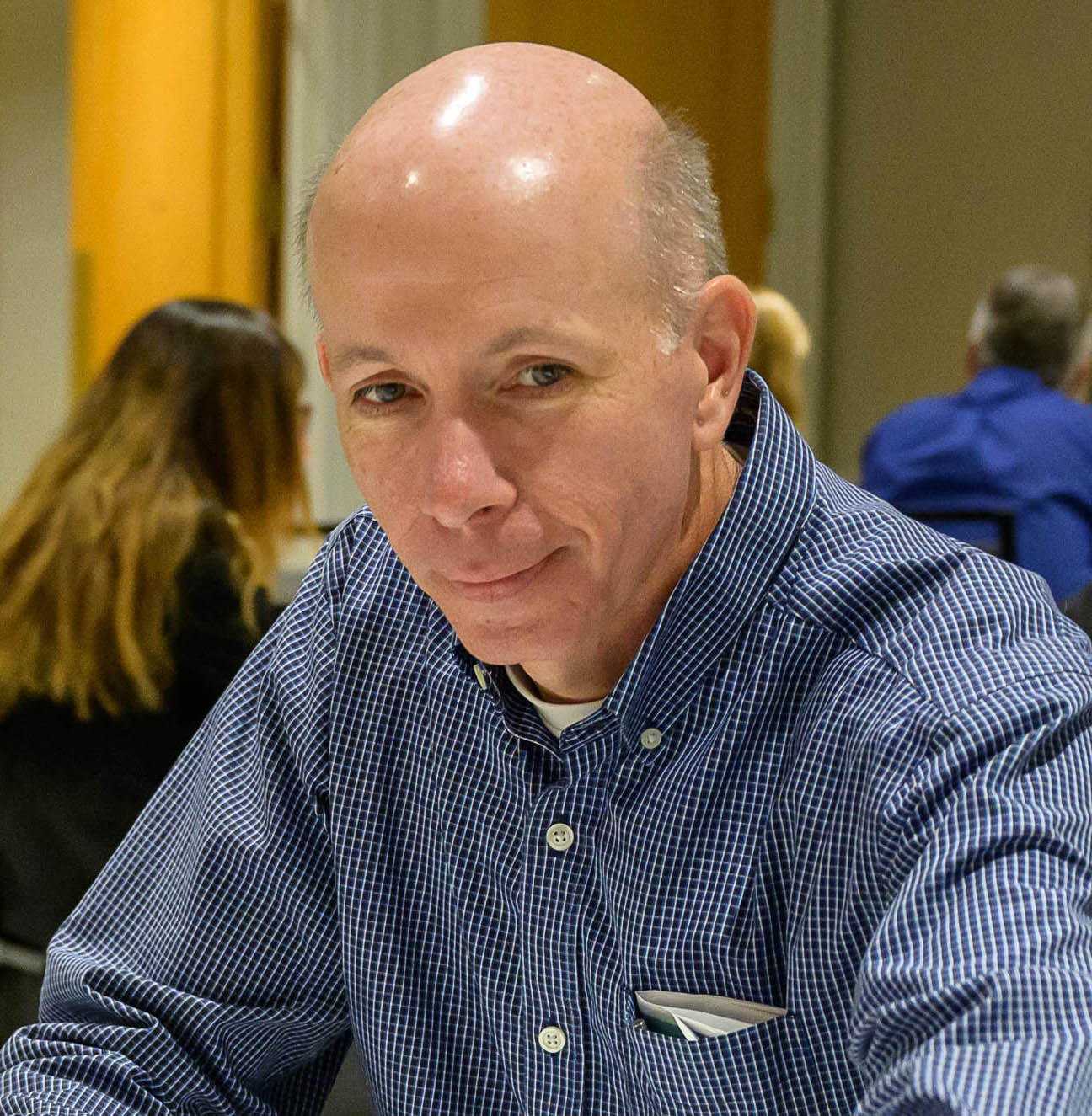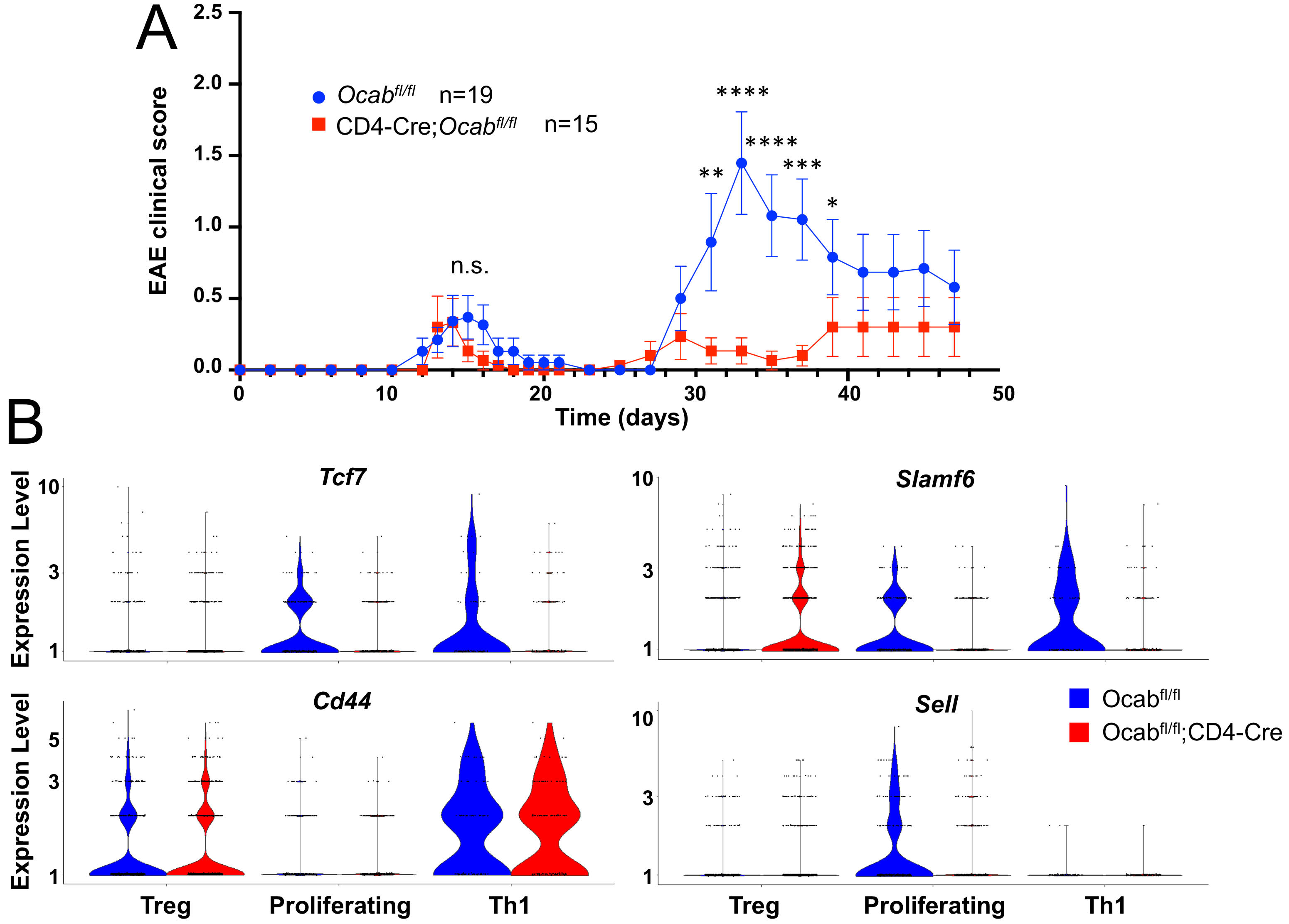Dean Tantin
Professor of Microbiology and Immunology
Gene Regulation in T cells, in T cell memory and autoimmunity, in Stem Cells and in Cancer

Molecular Biology Program
Education
B.S. University of California, San Diego
Ph.D. University of California, Los Angeles
Research
Our research emphasis is stem cells and the activities that endow cells with stem-like properties such as long life, homing to specific niches, self-renewal, and the ability to rapidly induce cohorts of silent but poised genes in response to external cues. In lymphocytes, these properties are important for the formation of immunological memory, to generate cells with strong anti-tumor activity, and to generate highly pathogenic cells in situations of autoimmunity. We study how these processes are controlled by sequence-specific DNA-binding transcription factors, as well as their upstream regulators and downstream effectors. Transcription factors are by far the most dominant controllers of cell fate. They do this through their ability to bind to specific DNA sequences within chromatin and in conjunction with other DNA-bound factors. For this reason, transcription factors play central roles in development, cell fate decisions and cellular reprogramming. Aberrations in transcription factor function result in immune dysfunction, developmental defects, and cancer. Our research merges molecular biological and in vivo experiments to determine the function and physiological impact of transcription factor activity. One guiding principle is that, as enabling technologies allow for future drug development to focus on transcription factors and their cofactors, direct pharmaceutical targeting of gene expression will become increasingly prevalent
Some current major projects in the lab:
- Interplay between transcription factors Oct1 and Oct4 in pluripotent cells and their differentiated progeny.
- Spatiospecific Oct4 cofactors.
- Oct4 redox regulation in reprogramming and peri-implantation development.
- Topological interactions between linked T cell effector gene loci in naïve, activated, resting and restimulated T cells.
- Roles of the transcriptional cofactor OCA-B/Pou2af1/Bob.1 in T cell memory, autoimmunity and anti-tumor immunity.
- Exploiting OCA-B as a possible drug target.
- Testing Oct1’s ability to improve human blood cell differentiation.

- Effect of T-cell specific OCA-B knockout using a relapsing/remitting (NOD) model of multiple sclerosis. Mouse clinical disease scores were followed during initial presentation, 1st remission and 1st relapse, after which they become asynchronous. Differences were only significant upon relapse, where OCA-B knockout conferred strong protection.
- Gene expression in key CNS T cell clusters based on single-cell RNA-seq of NOD.EAE mice at remission is shown.
References (Selected Publications)
- Hughes EP, Syage AR, Tantin D. (2024) Durable CD4+ T cell immunity: cherchez la stem. Trends Imm. (in press)
- Sun W, Hughes EP, Kim H, Perovanovic J, Charley KR, Perkins B, Du J, Ibarra A, Syage AR, Hale JS, Williams MA, Tantin D. (2024) OCA-B/Pou2af1 is sufficient to promote CD4+ T cell memory and prospectively identifies memory precursors. Proc. Nat. Acad. U.S.A. (in press)
- Perovanovic J, Wu Y, Abewe H, Shen Z, Hughes EP, Gertz J, Chandrasekharan MB, Tantin D. (2023) Oct1 cooperates with Smad transcription factors to promote lineage specification. Sci Signaling. 16:eadd5750.
- Baessler A, Novis CL, Shen Z, Perovanovic J, Wadsworth M, Thiede KA, Sircy LM, Harrison-Chau M, Nguyen NX, Varley KE, Tantin D, Hale JS. (2022) Tet2 coordinates with Foxo1 and Runx1 to balance T follicular helper cell and T helper 1 cell differentiation. Sci Adv. 8:eabm4982.
- Lin Y, Perovanovic J, Kong Y, Igyarto BZ, Zurawski S, Tantin D, Zurawski G, Bettini M, Bettini ML. (2022) Antibody-Mediated Targeting of a Hybrid-Insulin-Peptide Towards Neonatal Thymic Langerin+ Cells Enhances T Cell Central Tolerance and Delays Autoimmune Diabetes. Diabetes 71:1735-1745.
- Sun W, Guo J, McClellan D, Poeschla A, Bareyan D, Casey MJ, Cairns BR, Tantin D*, Engel ME* (2022). GFI1 Cooperates with IKZF1/IKAROS to Activate Gene Expression in T Cell Acute Lymphoblastic Leukemia. Mol Cancer Res 20:501. *co-corresponding authors
- Sun W, Jia X, Liesa M, Tantin D*, Ward DM* (2021). ABCB10 Loss Reduces CD4+ T Cell Activation and Memory Formation. J Immunol 208:328. *co-corresponding authors
- Kim H, Perovanovic J, Shakya A, Shen Z, German CN, Ibarra A, Jafek JL, Lin N-P, Evavold BD, Chou DH-C, Jensen PE, He X, Tantin D (2021) Targeting transcriptional coregulator OCA-B/Pou2af1 blocks activated autoreactive T cells in the pancreas and type-1 diabetes. J. Exp. Med. 218:e20200533
- Bensard CL, Wisidagama DR, Olson KA, Berg JA, Krah NM, Schell JC, Nowinski SM, Fogarty S, Bott AJ, Wei P, Dove KK, Tanner JM, Panic V, Cluntun A, Lettlova S, Earl CS, Namnath DF, Vázquez-Arreguín K, Villanueva CJ, Tantin D, Murtaugh LC, Evason KJ, Ducker GS, Thummel CS, Rutter J. (2020) Regulation of Tumor Initiation by the Mitochondrial Pyruvate Carrier. Cell Metab. 31: 284
- McDonough JE, Ahangari F, Li Q, Jain S, Verleden SE, Herazo-Maya J, Vukmirovic M, DeIuliis G, Tzouvelekis A, Tanabe N, Chu F, Yan X, Verschakelen J, Homer RJ, Manatakis DV, Zhang J, Ding J, Maes K, De Sadeleer L, Vos R, Neyrinck A, Benos PV, Bar-Joseph Z, Tantin D, Hogg JC, Vanaudenaerde BM, Wuyts WA, Kaminski N. (2019) Transcriptional regulatory model of fibrosis progression in the human lung. JCI Insight 4:e141597
- Jafek JL, Shakya A, Tai P-Y, Ibarra A, Kim H, Maddox J, Chumley J, Spangrude GJ, Miles RR, Kelley TW and Tantin D (2019) Transcription factor Oct1 protects against hematopoietic stress and promotes acute myeloid leukemia. Exp. Hemat. 76:38
- Vázquez-Arreguín K, Bensard C, Schell JC, Swanson E, Chen X, Rutter J, Tantin D (2019) Oct1/Pou2f1 is selectively required for colon regeneration and regulates colon malignancy. PLoS Genet. 15:e1007687
- Kim, H, Dickey L, Stone C, Jafek JL, Lane TE, Tantin D (2019) T cell-selective deletion of Oct1 protects animals from autoimmune neuroinflammation while maintaining neurotropic pathogen response. J. Neuroinflamm. 16:133
- Shen Z, Formosa T, Tantin D (2018) FACT Inhibition Blocks Induction but not Maintenance of Pluripotency. Stem Cells Dev. 27:1693
- Vázquez-Arreguín K, Maddox J, Kang J, Park D, Cano RR, Factor RE, Ludwig T, Tantin D (2018) BRCA1 Through its E3 ligase Activity Regulates the Transcription Factor Oct1 and Carbohydrate Metabolism. Mol. Cancer. Res. 16: 439
- Shen Z, Kang J, Shakya A, Tabaka M, Jarboe EA, Regev A, Tantin D (2017) Enforcement of developmental lineage specificity by transcription factor Oct1. Elife e20937
- Kikani CK, Wu X, Paul L, Sabic H, Shen Z, Shakya A, Keefe A, Villanueva C, Kardon G, Graves B, Tantin D, Rutter J (2016) Pask integrates hormonal signaling with histone modification via Wdr5 phosphorylation to drive myogenesis. Elife e17985
- Vázquez-Arreguín K, Tantin D (2016) The Oct1 transcription factor and epithelial malignancies: old protein learns new tricks. Biochem. Biochim Biophys Acta 1859: 792-804
- Shakya A, Goren A, Shalek A, German CN, Snook J, Kuchroo VK, Yosef N, Chan RC, Regev A, Williams MA, Tantin D (2015) Oct1 and OCA-B are Selectively Required for CD4 Memory T Cell Function. J. Exp. Med. 212: 2115
- Shakya A, Callister C, Goren A, Yosef N, Garg N, Khoddami V, Nix D, Regev A, Tantin D (2015) Pluripotency transcription factor Oct4 mediates stepwise nucleosome demethylation and depletion. Mol Cell Biol 35: 1014-25
- Tantin D (2013) Oct transcription factors in development and stem cells: insights and mechanisms. Development 140: 2857-2866
- Maddox J, Tantin D (2013) Oct4, Oct1 and Cancer Stem Cells. In “Cancer Stem Cells” Ed: Vinagolu K. Rajasekhar, Wiley & Sons, p 319–329
- Kang J, Shen Z, Lim JM, Handa H, Wells L, Tantin D (2013) Regulation of Oct1/Pou2f1 transcription activity by O-GlcNAcylation. FASEB J. 27: 2807-17
- Yosef N, Shalek AK, Gaublomme JT, Jin H, Lee Y, Awasthi A, Wu C, Karwacz K, Xiao S, Jorgolli M, Gennert D, Satija R, Shakya A, Lu DY, Trombetta JJ, Pillai MR, Ratcliffe PJ, Coleman ML, Bix M, Tantin D, Park H, Kuchroo VK, Regev A (2013) Dynamic regulatory network controlling TH17 cell differentiation. Nature 496: 461-468
- Manning J, Mitchell B, Appadurai DA, Shakya A, Pierce LJ, Wang H, Nganga V, Swanson PC, May JM, Tantin D, Spangrude GJ (2013) Vitamin C promotes maturation of T-cells. Antioxid Redox Signal 19: 2054-2067
- Maddox J, Shakya A, South S, Shelton D, Andersen JN, Chidester S, Kang J, Gligorich KM, Jones DA, Spangrude GJ, Welm BE and Tantin D (2012) Transcription Factor Oct1 is a Somatic and Cancer Stem Cell Determinant. PLoS Genet. 8: e1003048
- Li Q, Shakya A, Guo X, Zhang H, Tantin D, Jensen PE, Chen X (2012) Constitutive Nuclear Localization of NFAT in FoxP3+ Regulatory T Cells Independent of Calcineurin Activity. J Immunol 188: 4268-4277
- Ferraris L, Stewart AP, Kang J, Desimone AM, Gemberling M, Tantin D, Fairbrother WG (2011) Combinatorial binding of transcription factors in the pluripotency control regions of the genome. Genome Res 21: 1055-1064
- Shakya A, Kang J, Chumley J, Williams MA, Tantin D (2011) Oct1 is a switchable, bipotential stabilizer of repressed and inducible transcriptional states. J Biol Chem 286: 450-459
- Shakya A, Cooksey R, Cox JE, Wang V, McClain DA, Tantin D (2009) Oct1 loss of function induces a coordinate metabolic shift that opposes tumorigenicity. Nat Cell Biol 11: 320-327
- Kang J, Gemberling M, Nakamura M, Whitby FG, Handa H, Fairborther W, Tantin D (2009) A general mechanism for transcription regulation by Oct1 and Oct4 in response to oxidative stress. Genes Dev 23: 208-222
